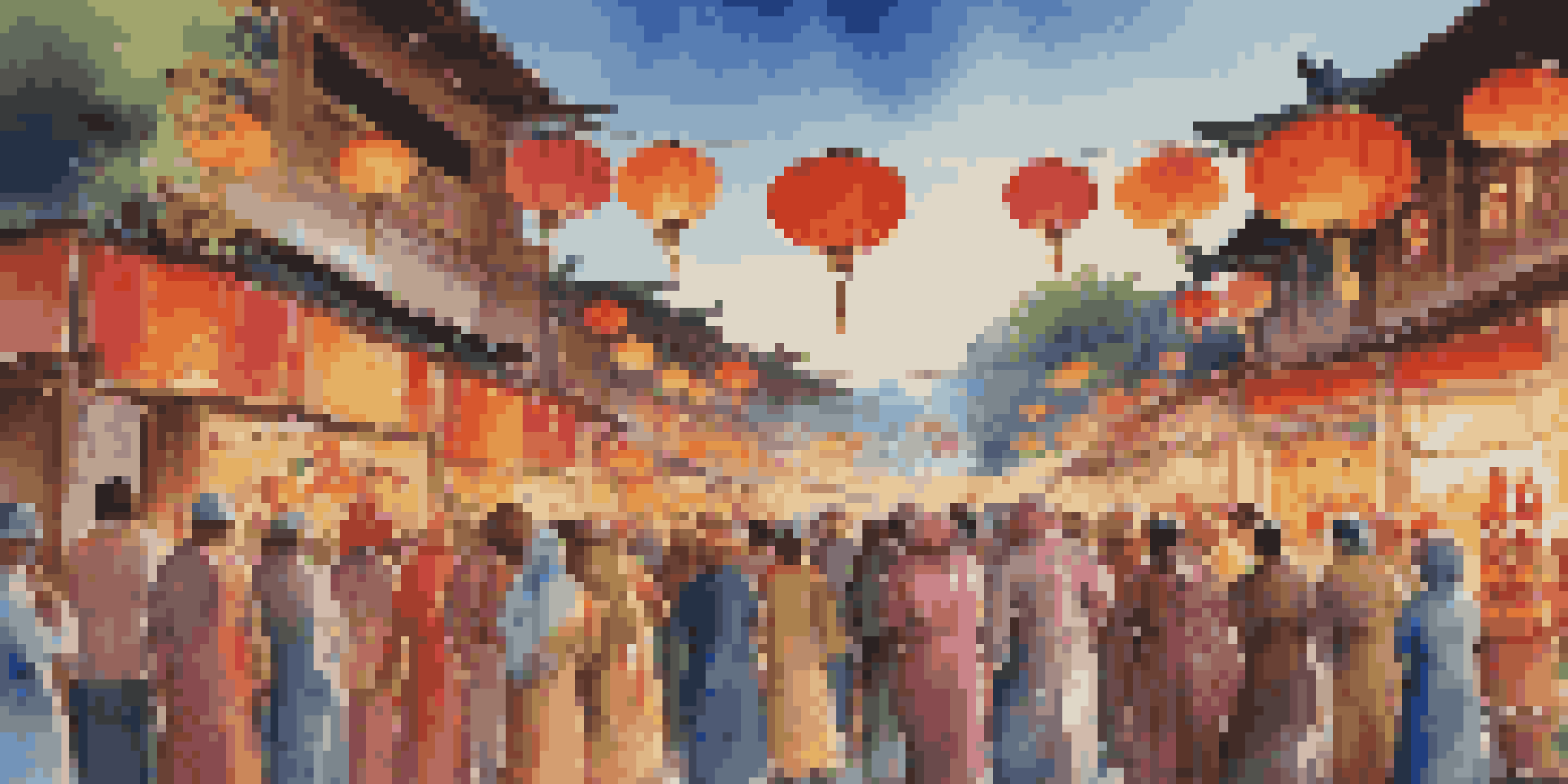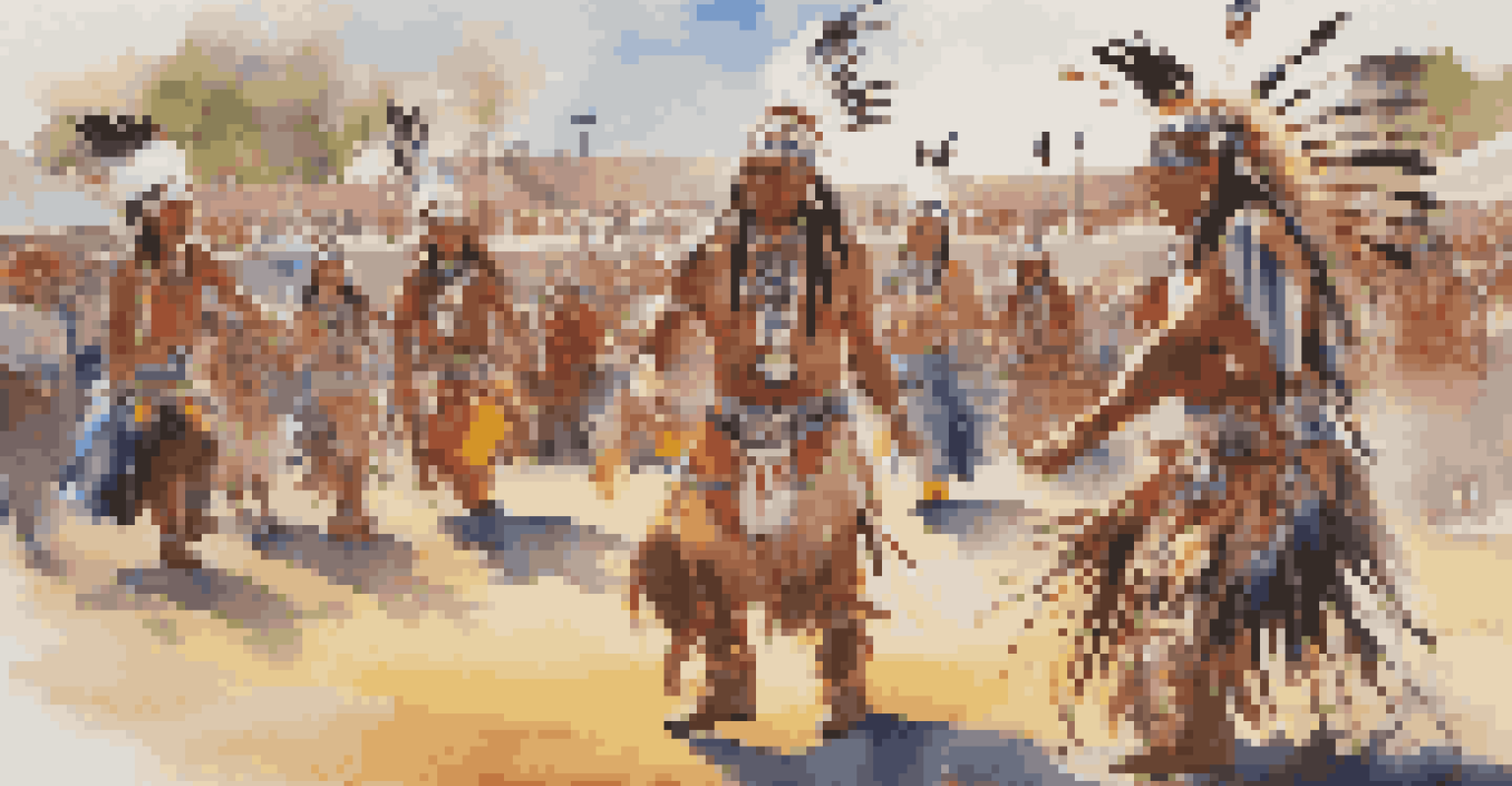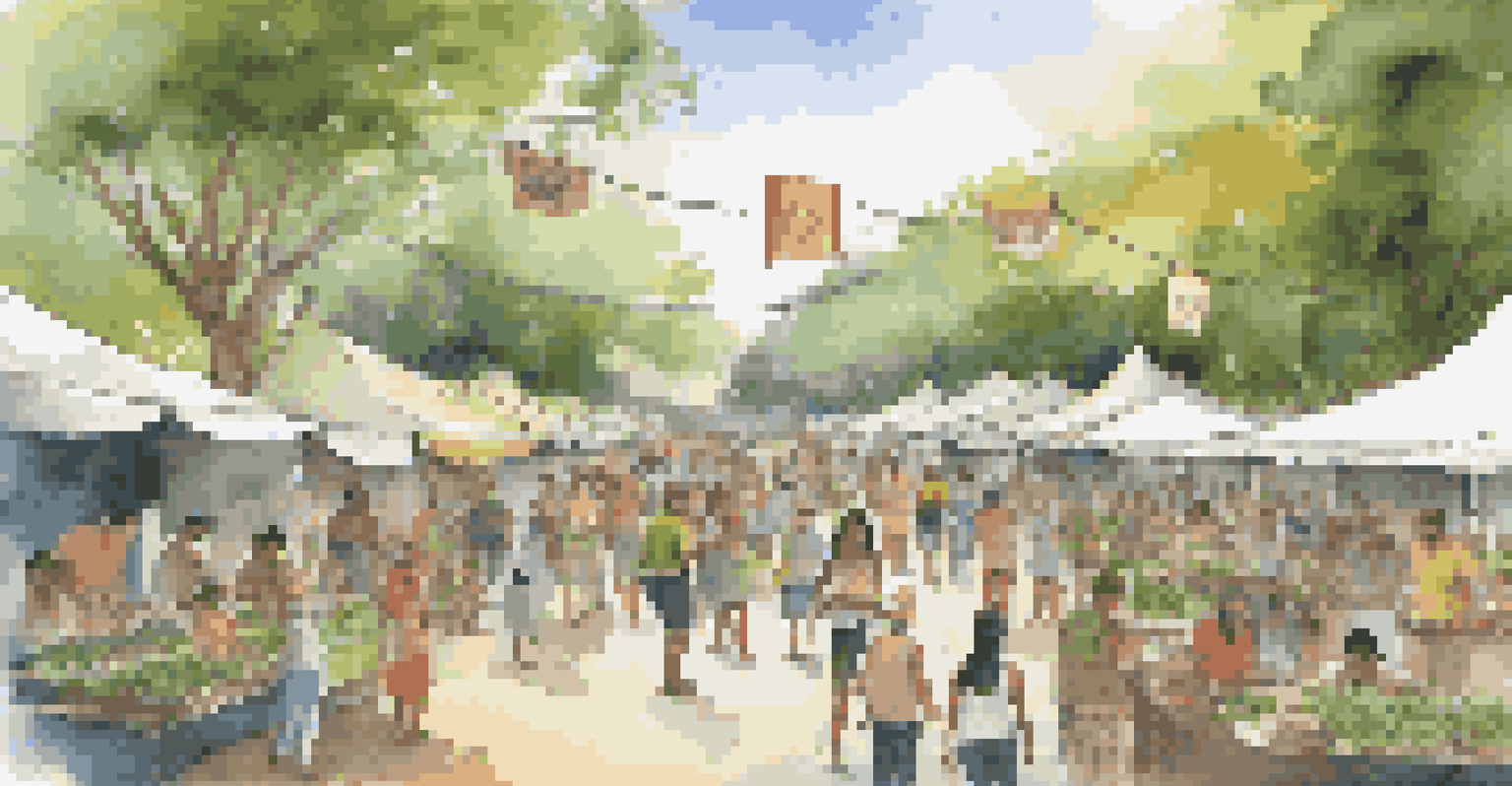Cultural Festivals: Learning Through Global Celebrations

The Importance of Cultural Festivals in Society
Cultural festivals serve as vibrant expressions of community and identity. They bring people together, fostering a sense of belonging and shared heritage. Through music, dance, and art, these celebrations showcase the unique elements that define a culture, allowing attendees to experience traditions firsthand.
Cultural festivals are the heartbeat of a community, showcasing our shared heritage and celebrating our diversity.
Moreover, festivals play a crucial role in preserving cultural practices that might otherwise fade away. For instance, the revival of folk dances at local festivals helps younger generations connect with their history. When communities gather to celebrate, they pass on stories, rituals, and customs that enrich their cultural tapestry.
Lastly, cultural festivals also contribute to local economies by attracting tourism and supporting small businesses. Vendors, local artists, and performers benefit from the influx of visitors, which can lead to a lasting positive impact on the community. Overall, these celebrations are vital for cultural continuity and economic vitality.
Experiencing Diversity: Festivals Around the World
Around the globe, each festival offers a unique window into its host culture. For example, Diwali, the Festival of Lights celebrated in India, symbolizes the triumph of light over darkness and good over evil. Participants illuminate their homes and exchange sweets, creating a sense of joy and renewal that transcends borders.

On the other hand, the Rio Carnival in Brazil bursts with life, featuring parades, samba music, and vibrant costumes. This festival is not just a party; it represents the rich history of Afro-Brazilian culture and the resilience of its people. Attending such events allows individuals to immerse themselves in the customs and celebrations of different cultures.
Cultural Festivals Foster Community
Cultural festivals bring people together, strengthening community bonds and celebrating shared experiences.
By participating in these global festivities, we learn to appreciate our differences while celebrating our common humanity. Whether it's the communal meals during Eid or the colorful celebrations of Chinese New Year, these experiences deepen our understanding of the world and each other.
Festivals as Educational Experiences
Cultural festivals are not just fun; they are also rich educational experiences. Many festivals include workshops, discussions, and activities that teach attendees about traditions, arts, and crafts. For instance, at a Native American powwow, participants can learn about traditional drumming, dancing, and storytelling.
Festivals are not just about celebration; they are a way of preserving our culture and passing it on to future generations.
These educational components encourage curiosity and foster respect for different cultures. When families attend such festivals, children gain firsthand knowledge about customs that may differ from their own. This experiential learning can create lasting impressions and inspire future cultural exploration.
Incorporating educational elements into festivals can also benefit cultural preservation. By actively engaging younger generations, these events ensure that traditions are not merely observed but actively practiced and appreciated.
The Role of Technology in Cultural Festivals
In today's digital age, technology has significantly transformed how we experience cultural festivals. Social media platforms allow festival organizers to reach broader audiences, showcasing events through live streams and engaging content. This increased visibility helps foster global participation, even if attendees can't physically be present.
Additionally, technology facilitates the sharing of cultural narratives and experiences in real-time. People can post photos, videos, and stories, creating a digital tapestry of memories that others can explore. This online engagement not only promotes awareness but also encourages dialogue about cultural practices.
Festivals Enhance Cultural Education
These events offer educational opportunities that allow attendees to learn about traditions and customs from various cultures.
However, as we embrace technology, it's essential to balance it with authentic experiences. While virtual participation is valuable, nothing can replace the feeling of being in a vibrant crowd, breathing in the aromas of traditional food, and feeling the rhythm of local music.
Celebrating Sustainability in Cultural Festivals
As the world becomes more conscious of environmental issues, many cultural festivals are adopting sustainable practices. From using biodegradable materials to promoting local artisans, these initiatives aim to minimize ecological footprints while celebrating traditions. For example, the Glastonbury Festival in the UK has made significant strides toward sustainability by implementing waste reduction strategies.
Moreover, focusing on sustainability allows festivals to educate attendees about environmental responsibility. Workshops on recycling, local sourcing, and conservation can highlight the importance of preserving the environment for future generations. This not only enhances the festival experience but also instills a sense of responsibility in participants.
By integrating sustainability into cultural festivals, we can ensure that these celebrations continue to thrive without compromising the planet. It's a beautiful way of honoring both our cultural heritage and our commitment to a healthier Earth.
Building Community Through Cultural Festivals
Cultural festivals are powerful tools for building community bonds and fostering social cohesion. They provide a platform for individuals to come together, share experiences, and celebrate their diversity. When people engage in communal activities, they form connections that can lead to lasting friendships and collaborations.
For instance, local festivals often feature community service projects that encourage participants to give back. By working together on such initiatives, individuals not only contribute to the greater good but also strengthen their sense of belonging. This sense of unity is crucial, especially in today's increasingly fragmented world.
Sustainability in Festivals Rising
Many cultural festivals are adopting sustainable practices to minimize their ecological impact while celebrating heritage.
Ultimately, cultural festivals remind us of the shared values and experiences that unite us. They create spaces where people can celebrate their differences while finding common ground, fostering a spirit of inclusiveness and respect.
The Future of Cultural Festivals: Trends and Innovations
As we look to the future, cultural festivals will likely continue evolving to meet changing societal needs. One trend is the increased focus on inclusivity, ensuring that all voices are represented and celebrated. Organizers are becoming more aware of the importance of creating spaces where everyone feels welcome and valued.
Another innovation is the rise of hybrid festivals, combining in-person and virtual experiences. This format not only broadens accessibility but also allows for a more diverse range of participants. People from different backgrounds can join in, share their cultures, and learn from one another, regardless of geographical barriers.

By embracing these trends, cultural festivals can remain relevant and engaging for future generations. The key will be to balance tradition with innovation, ensuring that while we celebrate our heritage, we also adapt to the evolving landscape of our global community.